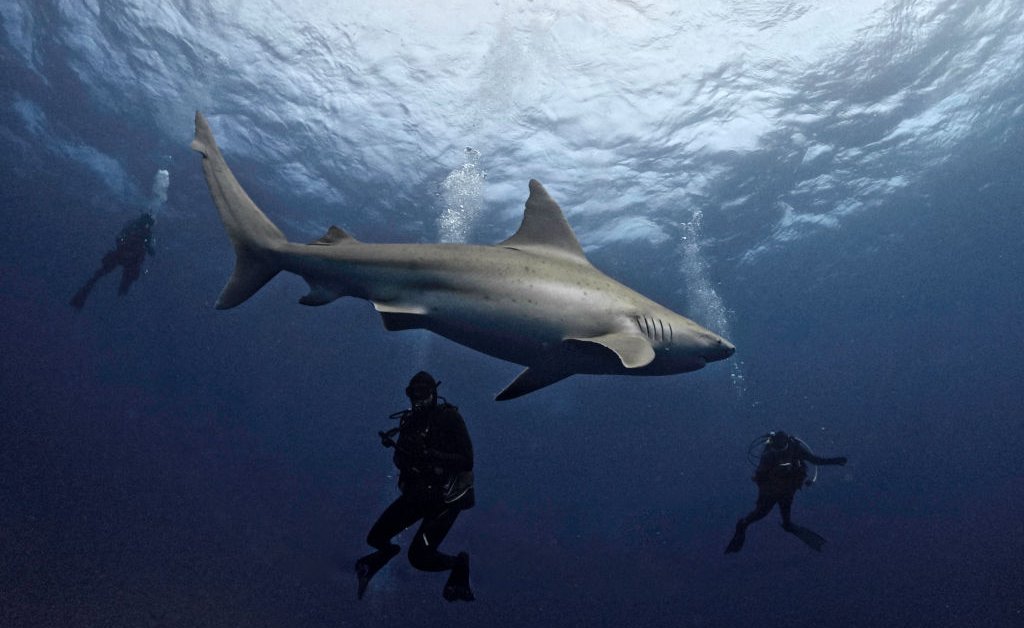The Jaws Effect: How A Movie Changed Our Relationship With Sharks

Welcome to your ultimate source for breaking news, trending updates, and in-depth stories from around the world. Whether it's politics, technology, entertainment, sports, or lifestyle, we bring you real-time updates that keep you informed and ahead of the curve.
Our team works tirelessly to ensure you never miss a moment. From the latest developments in global events to the most talked-about topics on social media, our news platform is designed to deliver accurate and timely information, all in one place.
Stay in the know and join thousands of readers who trust us for reliable, up-to-date content. Explore our expertly curated articles and dive deeper into the stories that matter to you. Visit Best Website now and be part of the conversation. Don't miss out on the headlines that shape our world!
Table of Contents
The Jaws Effect: How a Movie Changed Our Relationship with Sharks Forever
Summer 1975. A monstrous great white shark terrorizes a quiet beach town, leaving a trail of carnage in its wake. This wasn't a real-life horror, but the terrifying premise of Steven Spielberg's Jaws, a film that would irrevocably alter humanity's perception of sharks. While the movie was a cinematic triumph, its legacy extends far beyond box office numbers; it profoundly impacted our understanding and relationship with these magnificent creatures, an impact that continues to this day.
From Majestic Predators to Monstrous Villains
Before Jaws, sharks held a position of awe and respect, albeit often tinged with a degree of fear, within many cultures. They were powerful apex predators, a vital part of the marine ecosystem. However, Spielberg's masterpiece transformed this perception, painting sharks as mindless killing machines driven solely by bloodlust. The film's iconic score, combined with chilling visuals, cemented the image of the great white shark as a terrifying, relentless force of nature. This portrayal, while fictional, had devastating real-world consequences.
The Rise of Fear and the Fall of Shark Populations
The "Jaws effect" is a term used to describe the significant increase in shark killings and culls that followed the film's release. Suddenly, sharks were seen as dangerous threats requiring immediate eradication, rather than complex creatures deserving of conservation. Many coastal communities initiated indiscriminate shark hunts, often using brutal methods, driven by a fear fueled by the movie's portrayal. This resulted in a drastic decline in shark populations worldwide, a problem that continues to plague our oceans today. Several shark species, already vulnerable due to overfishing, suffered catastrophic population losses due to this unwarranted fear.
Misconceptions and the Need for Education
Jaws perpetuated several dangerous misconceptions about sharks. The film's portrayal of great whites as aggressive, man-eating machines ignores their typically shy nature and their crucial role in maintaining healthy ocean ecosystems. In reality, attacks on humans are extremely rare, and the vast majority of shark species pose no threat to humans. The movie's enduring popularity unfortunately continues to fuel these inaccurate perceptions.
To counteract this misinformation, numerous organizations are working tirelessly to educate the public about sharks. These initiatives include:
- Shark conservation programs: These efforts focus on protecting shark habitats and reducing bycatch (unintentional capture of sharks in fishing nets). Organizations like the Pew Charitable Trusts and the Shark Conservation Society are leading the charge in these efforts.
- Educational campaigns: Many organizations are dedicated to educating the public about the importance of sharks and dispelling the myths perpetuated by films like Jaws. Visiting local aquariums and marine sanctuaries can provide valuable insights into shark biology and behavior.
- Scientific research: Ongoing research continues to unravel the mysteries of shark behavior and ecology, providing crucial data for effective conservation strategies.
Beyond the Fear: Appreciating the Importance of Sharks
It’s vital to understand that sharks are not the mindless killing machines depicted in Jaws. They are essential components of a healthy ocean ecosystem. Their role as apex predators helps regulate fish populations, maintaining biodiversity and the overall health of the ocean. The decline in shark populations has far-reaching consequences for marine ecosystems and ultimately, for humanity.
A Call to Action: Understanding and Protecting Sharks
While Jaws remains a cinematic masterpiece, its legacy serves as a stark reminder of the power of media to shape public perception and influence real-world consequences. It’s time to move beyond the fear perpetuated by the film and embrace a more informed and compassionate understanding of sharks. By supporting shark conservation efforts and spreading accurate information, we can help ensure the survival of these magnificent creatures and the health of our oceans for generations to come. Learn more about shark conservation and how you can help at [link to a reputable shark conservation organization].

Thank you for visiting our website, your trusted source for the latest updates and in-depth coverage on The Jaws Effect: How A Movie Changed Our Relationship With Sharks. We're committed to keeping you informed with timely and accurate information to meet your curiosity and needs.
If you have any questions, suggestions, or feedback, we'd love to hear from you. Your insights are valuable to us and help us improve to serve you better. Feel free to reach out through our contact page.
Don't forget to bookmark our website and check back regularly for the latest headlines and trending topics. See you next time, and thank you for being part of our growing community!
Featured Posts
-
 Ufc Bahamondes Ex Policia Vs Su Combate Mas Importante
Jun 22, 2025
Ufc Bahamondes Ex Policia Vs Su Combate Mas Importante
Jun 22, 2025 -
 Video Ilia Topuria Dominates Pad Work Ahead Of Ufc 317 Headliner
Jun 22, 2025
Video Ilia Topuria Dominates Pad Work Ahead Of Ufc 317 Headliner
Jun 22, 2025 -
 Fluminense Vs Ulsan Head To Head Team News And Match Prediction
Jun 22, 2025
Fluminense Vs Ulsan Head To Head Team News And Match Prediction
Jun 22, 2025 -
 Historic Night Raleighs Two Home Runs Break Benchs Long Standing Record
Jun 22, 2025
Historic Night Raleighs Two Home Runs Break Benchs Long Standing Record
Jun 22, 2025 -
 Middle East Flight Cancellations Us Airlines Response And Traveler Advice
Jun 22, 2025
Middle East Flight Cancellations Us Airlines Response And Traveler Advice
Jun 22, 2025
